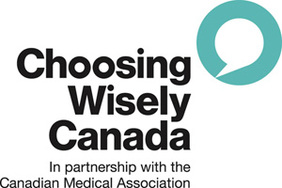To learn more about this enlightening research see Dr. Nadine Burke Harris' TED Talk:
https://www.ted.com/talks/nadine_burke_harris_how_childhood_trauma_affects_health_across_a_lifetime?language=en
|
We now understand better than ever how exposure to early adversity affects the developing brains and bodies of children. It affects areas like the nucleus accumbens, the pleasure and reward center of the brain that is implicated in substance dependence. It inhibits the prefrontal cortex, which is necessary for impulse control and executive function, a critical area for learning. And on MRI scans, we see measurable differences in the amygdala, the brain's fear response center. So there is concrete neurologic evidence why those exposed to high doses of adversity are more likely to engage in high risk behaviour and suffer worse health outcomes.
To learn more about this enlightening research see Dr. Nadine Burke Harris' TED Talk: https://www.ted.com/talks/nadine_burke_harris_how_childhood_trauma_affects_health_across_a_lifetime?language=en
5 Comments
In this poignant short video by Swedish filmmaker Erik Rosenlund, we get a unique glimpse into the reality of living with ADHD from a child's perspective. The beautiful film demonstrates many of the struggles these children face including difficulties in the classroom to their social relationships and how they may be seen by other youth. The film which aims to promote greater understanding of youth living with ADHD, also movingly demonstrates the importance of having a supportive parent who provides both love and patience.  As part of the Choosing Wisely Canada campaign, in June, 13 recommendations were made by the Canadian Psychiatric Association and its working group partners, the @Canadian Academy of Child and Adolescent Psychiatry (CACAP) and the Canadian Academy of Geriatric Psychiatry (CAGP) for the field of psychiatry. One of the main recommendations included how first-line treatments for insomnia should not include routine use of antipsychotics, and rather should be focused on non-pharmacological options including sleep hygiene and behavioural techniques. Other recommendations also comment on treatments for ADHD, depression, and dementia, as well as on using benzodiazepines in acute care, and ordering toxicology screens on psychiatric patients. For the full list check out the link here: http://www.cpa-apc.org/media.php?mid=2240 Neurobiologist David Anderson gives an enlightening and incredibly interesting TED talk on how the brain is affected by different mental health conditions, the underpinnings of our emotional behaviour and provides some insight into how we can improve our psychiatric medications by better understanding the biology and functioning of the mind ... "Modern psychiatric drugs treat the chemistry of the whole brain, but neurobiologist David Anderson believes in a more nuanced view of how the brain functions. He illuminates new research that could lead to targeted psychiatric medications — that work better and avoid side effects. How's he doing it? For a start, by making a bunch of fruit flies angry" (Ted.com).  Put your knowledge and skills to the test with the case of a 16 year old male who presents with anger issues, including increased irritability and aggression, as well as trouble concentrating and learning in school leading to a decline in grades. He reports that he has been depressed for a few months, that his grandfather with whom he was close recently died, and that he cannot play football anymore because of a history of concussion. Can you determine the cause of his symptoms or come up with a treatment plan? "Angry, Inattentive, and Sidelined" by Ravi Shankar and Lauren Swager (Current Psychiatry) A must watch! In this 2 minute video mental health advocate Becca Calla, who has been diagnosed with Tourette's, OCD, Pervasive Developmental Disorder, and ADHD, talks about her experiences with stigma and mentalillness. She also helps to demonstrate just how important receiving love and support is, and encourages us all to rethink our own perceptions of mental illness and take action to eliminate the stigma and stereotypical views of those suffering with mental health issues. "Becca proves that her mental illnesses do not define her or will stop her from achieving her goals ... "Ask anyone that knows me now. I'm the happiest girl because I know I'm getting the right support and help I need."" |
Description
Supporting and enhancing students' and health professionals' knowledge and understanding of mental health and psychiatry
Archives
June 2017
Categories
All
|